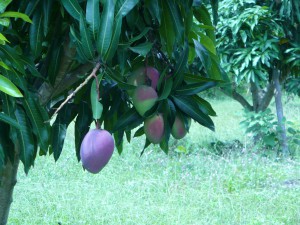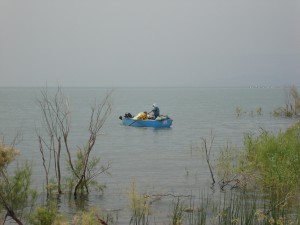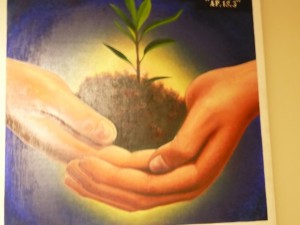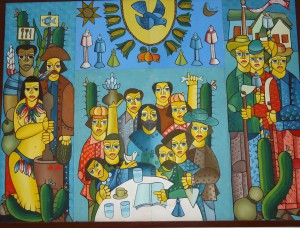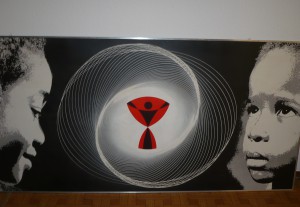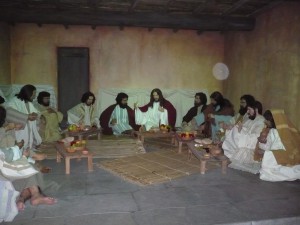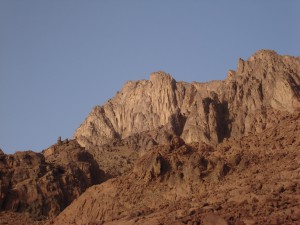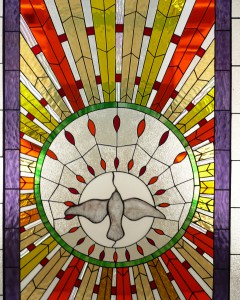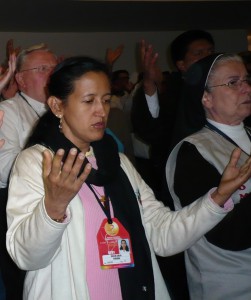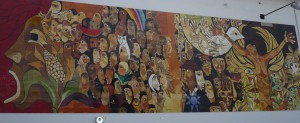A Commentary on Mk 4, 35-41 (¡2th Sunday of O.T., June 21first 2015)
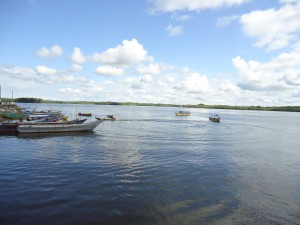 To cross boundaries
To cross boundaries
Last Sunday we saw Jesus by the Sea of Galilee teaching to a large crowd about the Kingdom of God in an inspiring language. Today we read how Jesus, on the eve of the same day, invited his disciples to get into a boat and cross to “the other side”. It is quite evident for me that this expression –“the other side”- has in the gospel a deeper meaning than just a geographical one. We know that the other side of the lake was populated by people of different culture and religious practices. As a matter of fact, several times in the gospels Jesus appears pushing his disciples to walk to other villages and towns and to go and meet Samaritans, sinners, pagans an other kinds of “different people”.
This missionary attitude of Jesus was assumed by the Church from the very beginning, after Resurrection, till our times. Paul, for example, was “forced” by the Spirit to cross the border from Asia into Europe (Macedonia); Francois Xavier expanded the Gospel to the Far East Asia; Daniel Comboni, with others, opened the borders of Africa to the Church… And son many other missionaries.
In our days, the Church cannot remain locked in a glorious missionary past. Also today the Church is invited by the Spirit to cross new geographical, cultural and religious boundaries to share the treasure of the Gospel with XXI century humanity: with refugees and migrants, with young people who look for a new future and old people who feel abandoned, people who move around as seep with no shepherd… We all should ask ourselves: To which side does Jesus invites us to cross today? Where are the boundaries to which that my family, my parish, my community should move now?
To get into the sea and resist the squalls
We know that in the Bible the sea is an image of the evil that we can meet in the world, with its dangerous waves and violent storms, that can destroy the small boat of our personal life or even the fragile community we belong to.
In fact, when we leave the small “protected world” of our routine, where we have everything under control, surely we face obstacles and problems that we are not sure how to overcome. When we leave behind the “existential walls” of our parish, family or community, most surely we will have to confront a hostile world, opposed to our way of life. The outside world can become a formidable threat to our weak faith and fragile community.
A moment like this is what Mark describes in todays’ reading, reminding us of the disciples lesson: they did not act as super-heroes; they acknowledged their fear and prayed very sincerely from their anguish. That was the moment to shout out to the Lord with great sincerity and conviction: “Teacher, do you not care that we are perishing?”
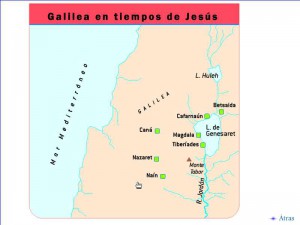 …And the Lord was with them
…And the Lord was with them
Mark’s story brings to us the experience of those first members of the Church. They experienced persecution and strong oppositions; in those circumstances they doubted and were afraid, thinking that the Lord was sleeping and absent, but at the end they experienced that the Lord was very much alive and full or power over evil, in spite of their little faith.
For us, as for the first disciples, it’s very important that, in any missionary initiative, we carry the Lord in “our boat”. We should not go on mission only with our enthusiasm, strength and creativity. If the mission is just our own initiative, when the wind blows, most probably we are going to sink. But if we take the Lord with us (in his Word, his sacraments, his community, his Spirit…), when the difficult time comes, surely we are going to feel his presence, we will be able to shout out to him, He will answer and we shall reach the other side ready to spread the Good News
Fr. Antonio Villarino
Roma




